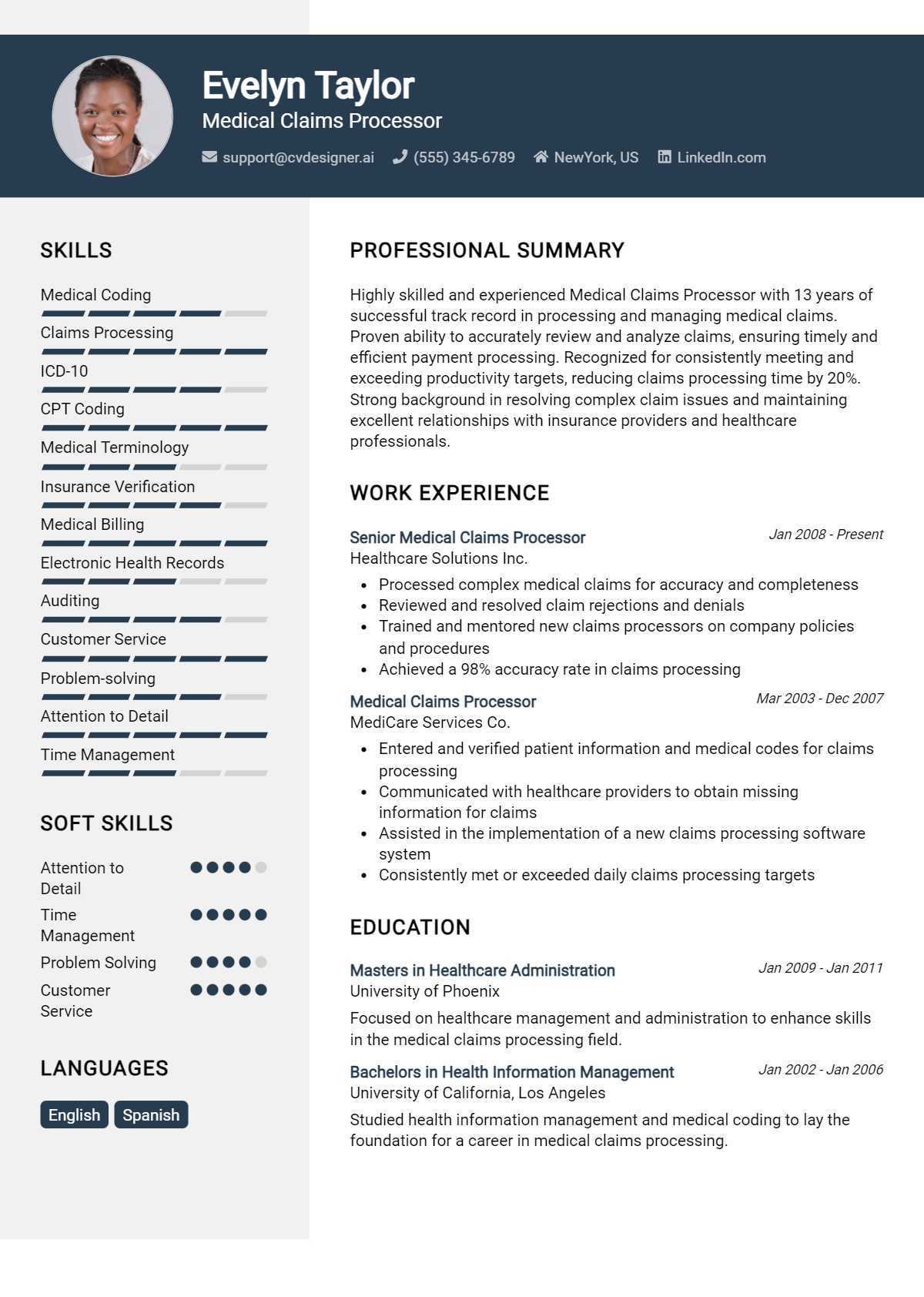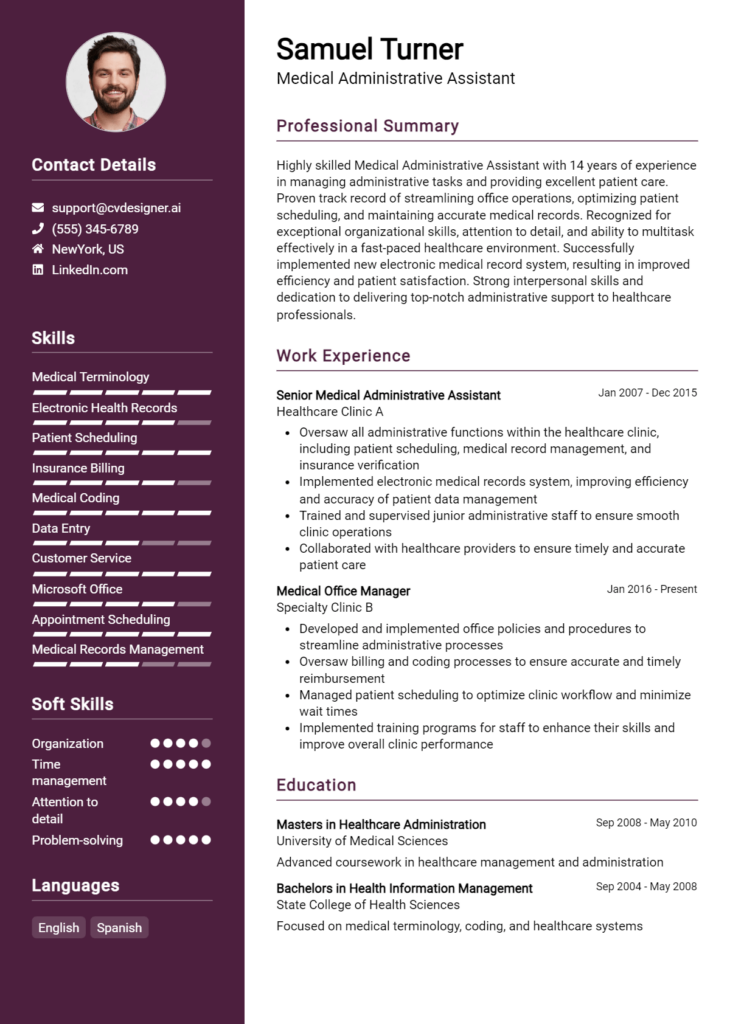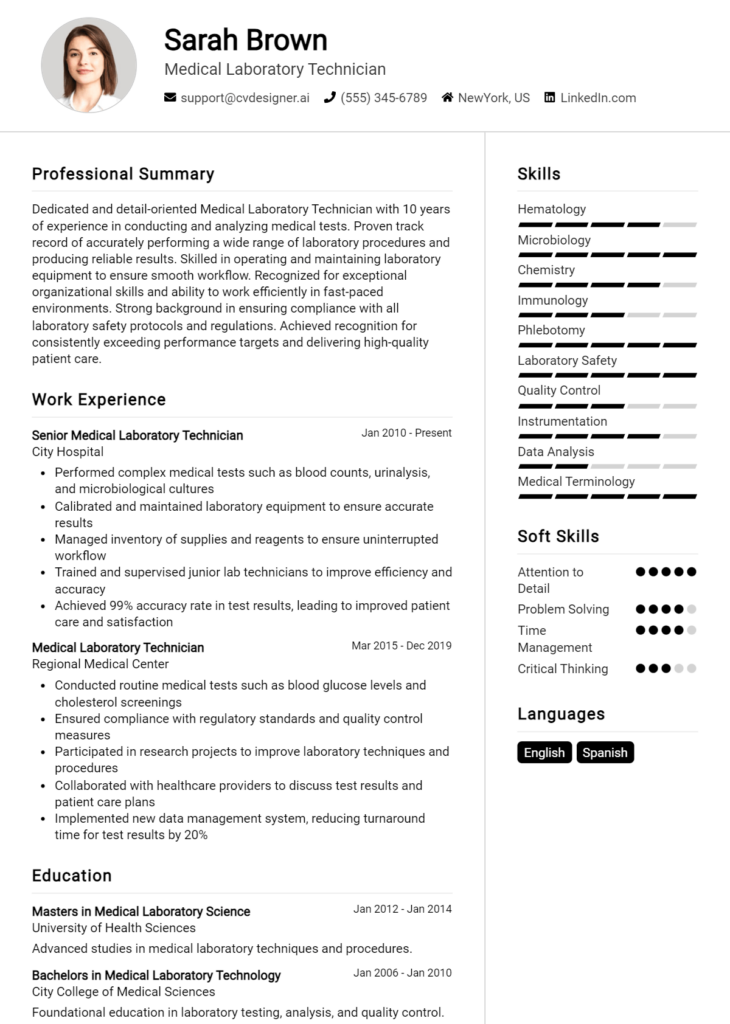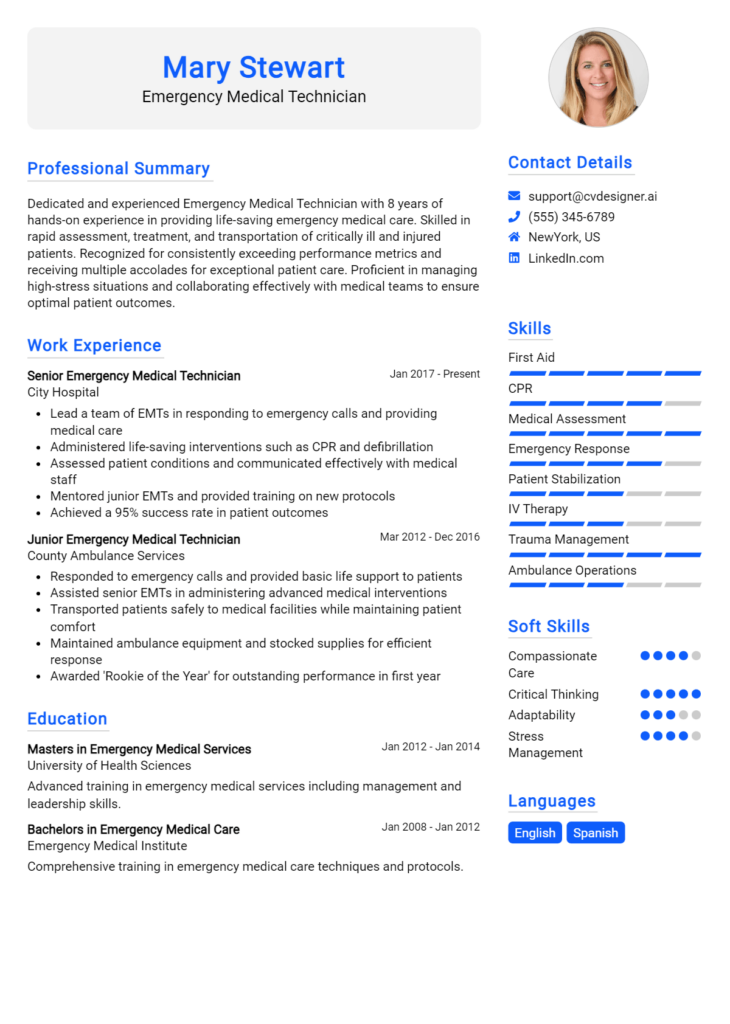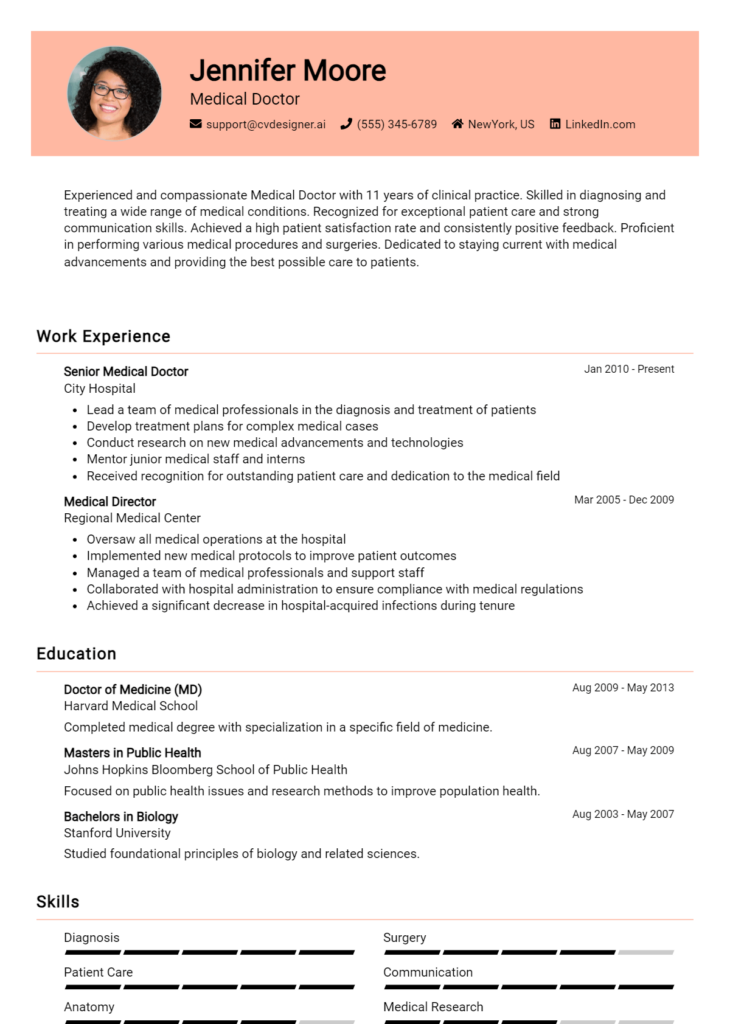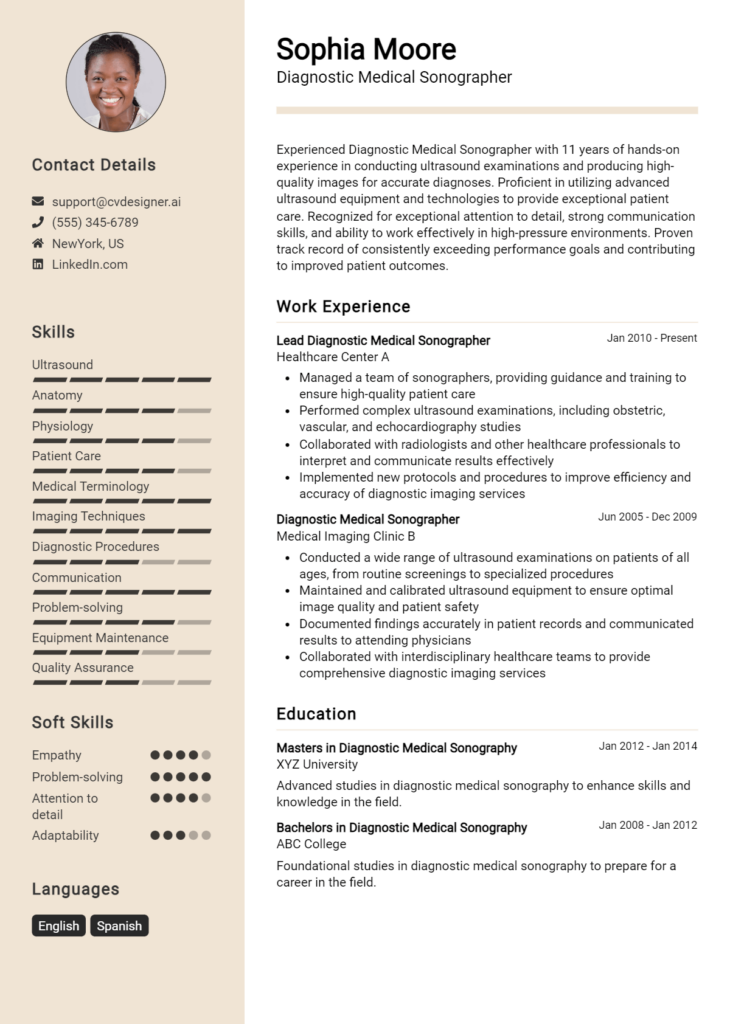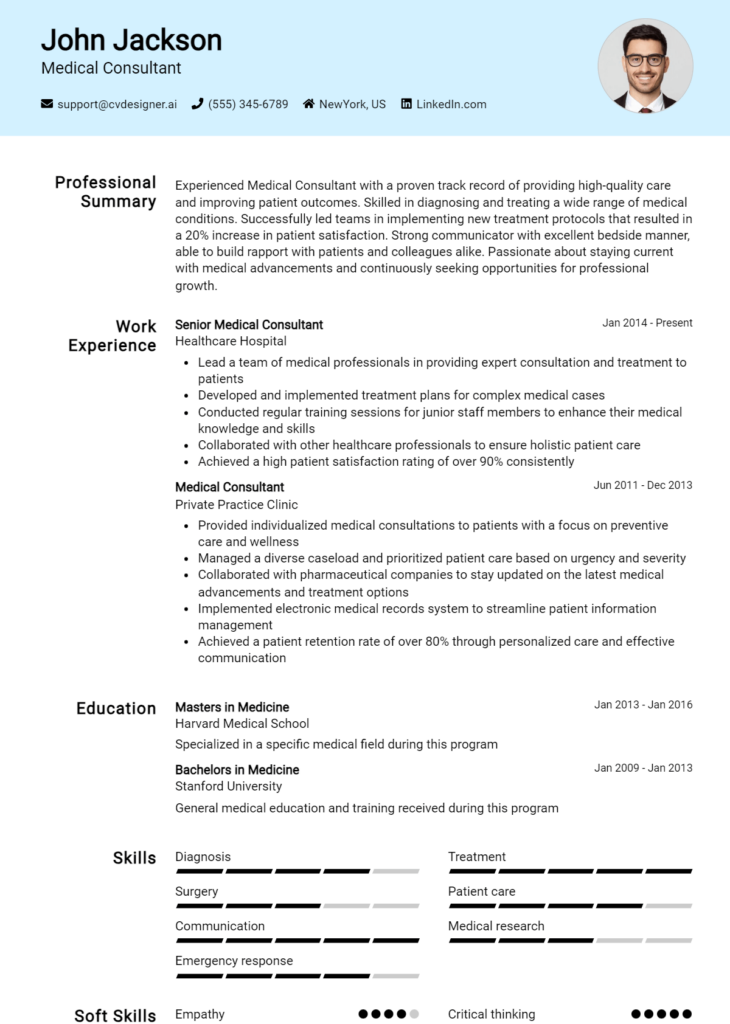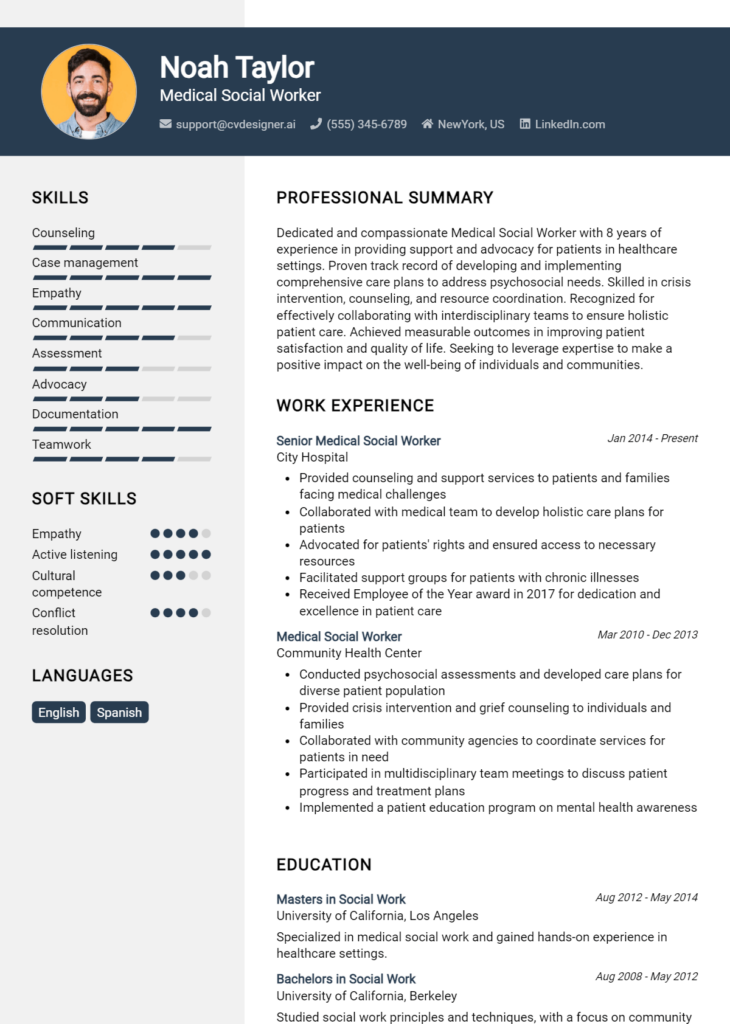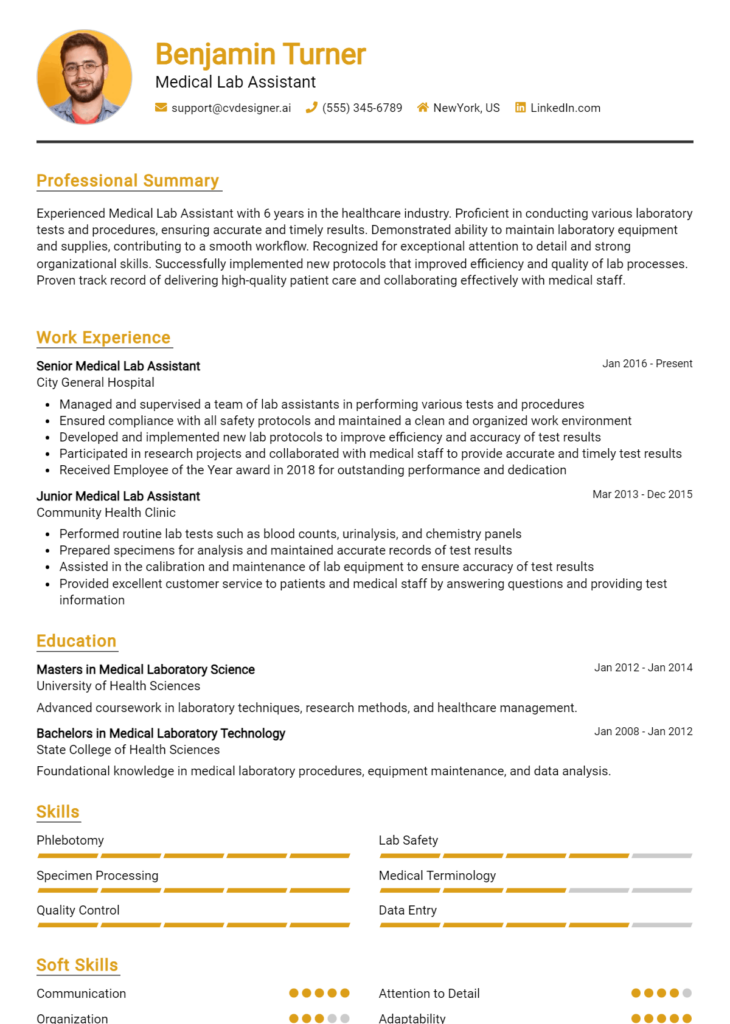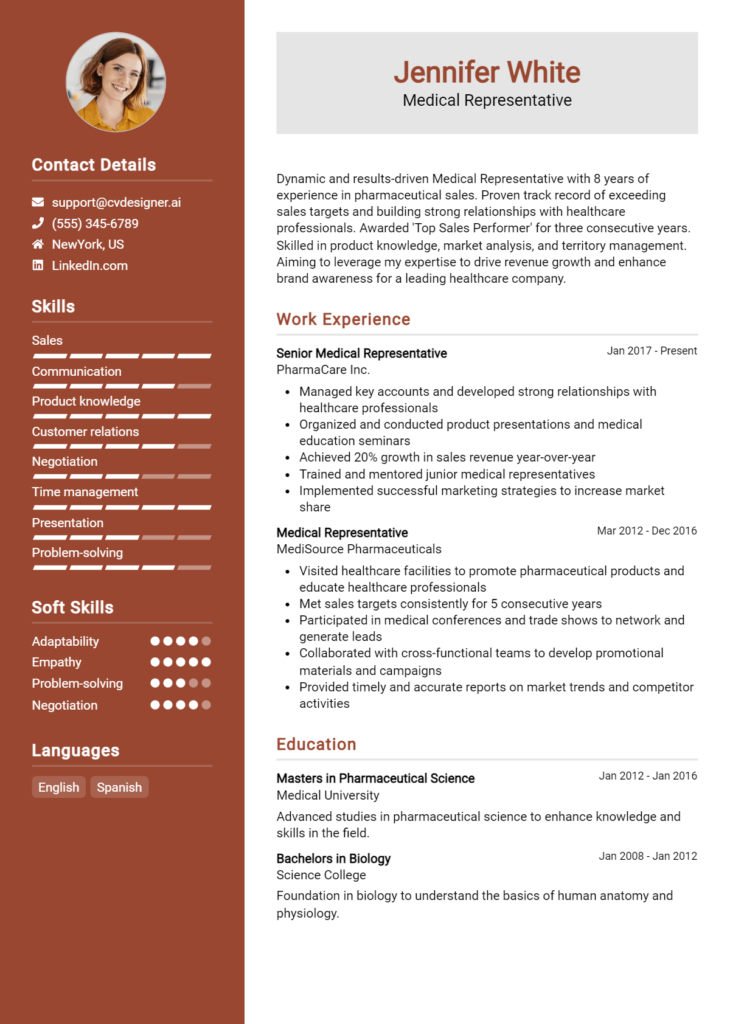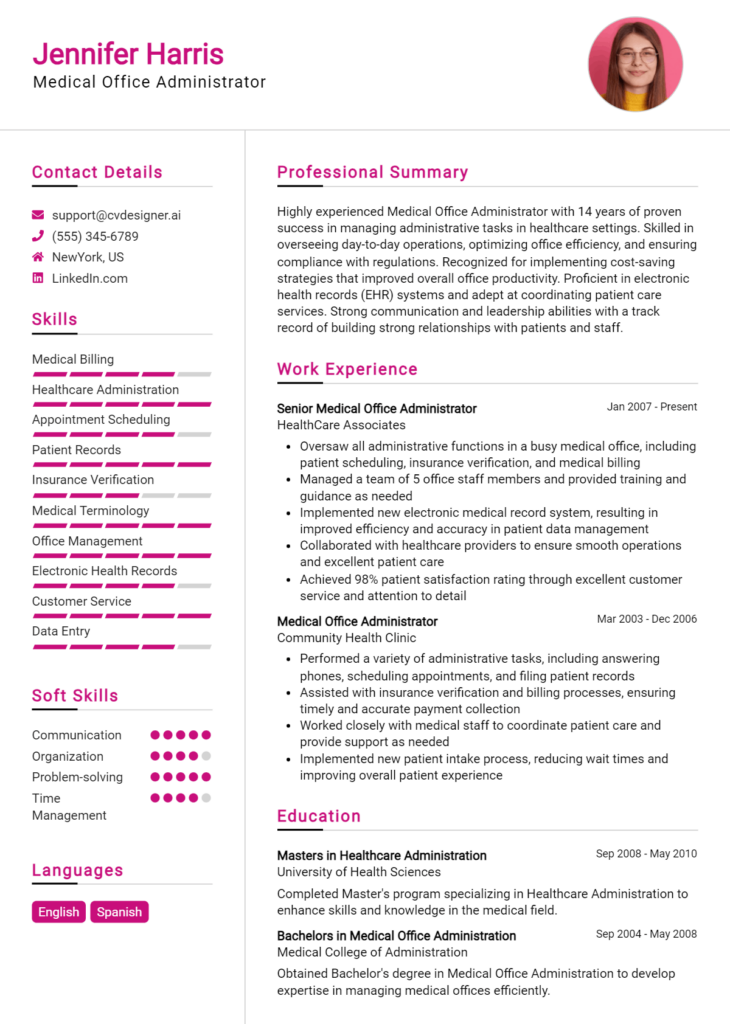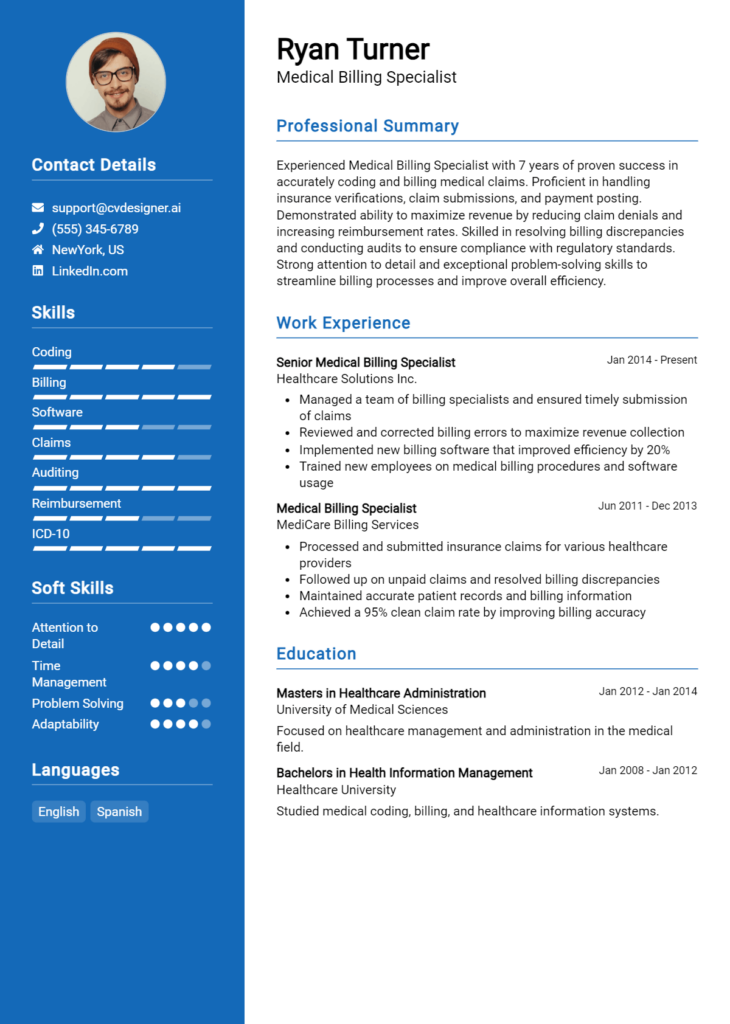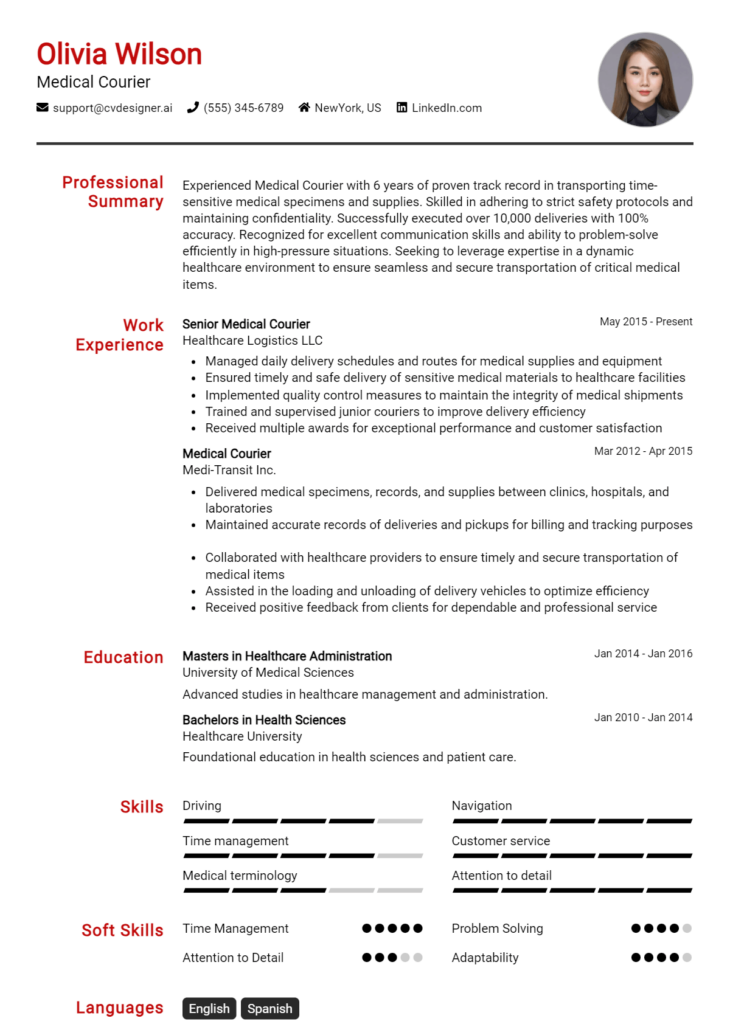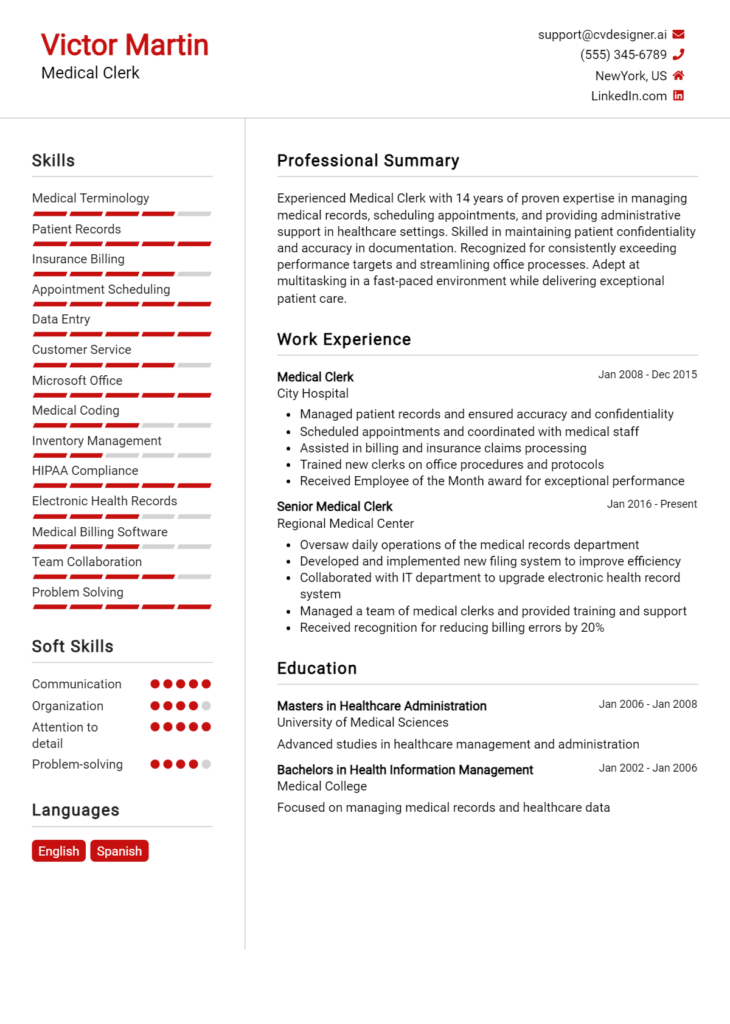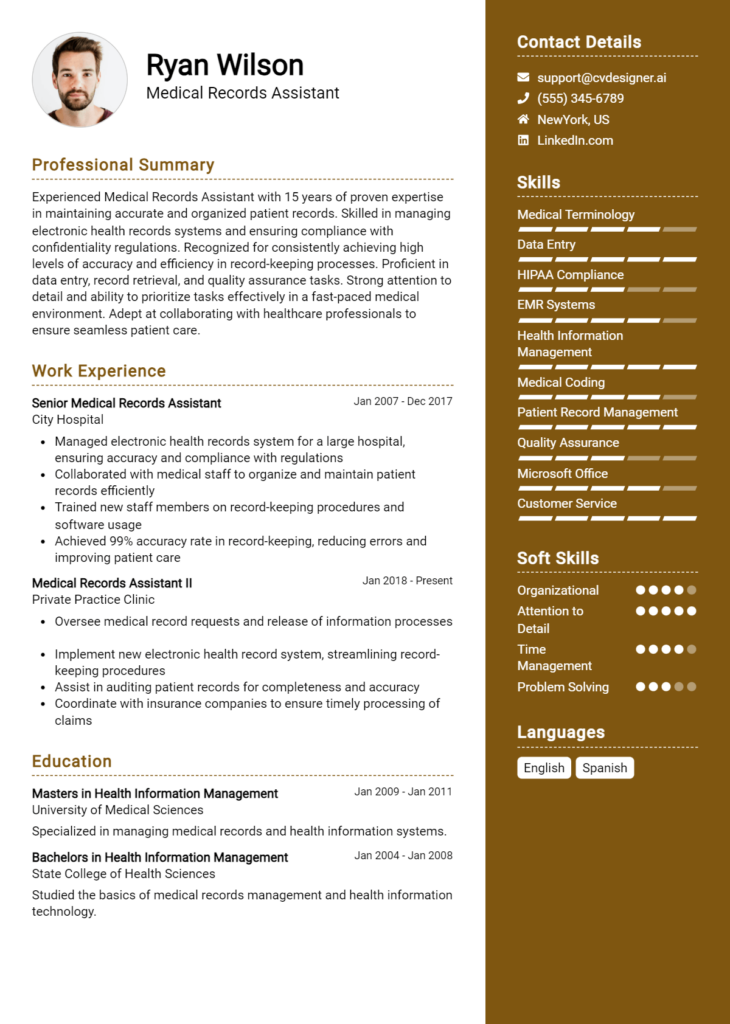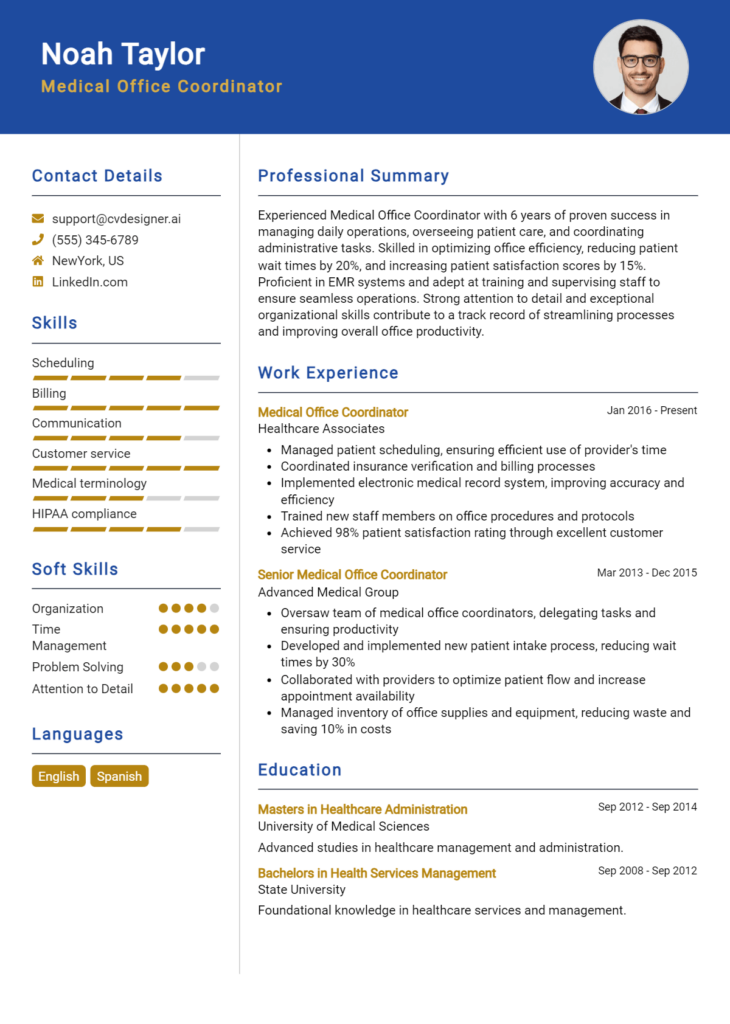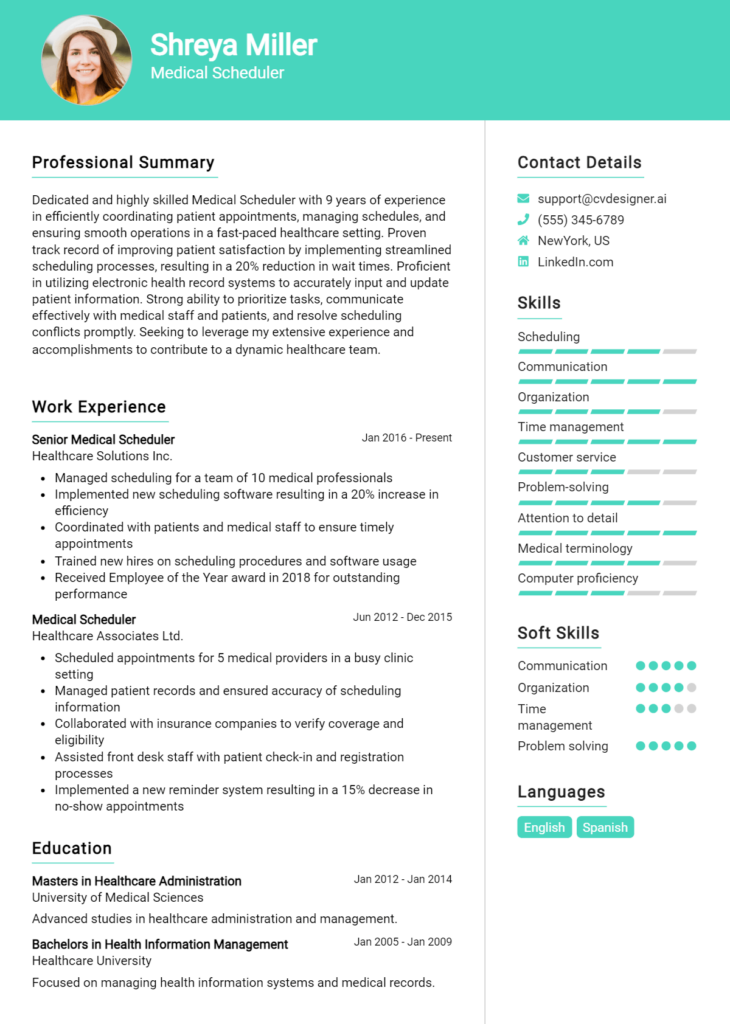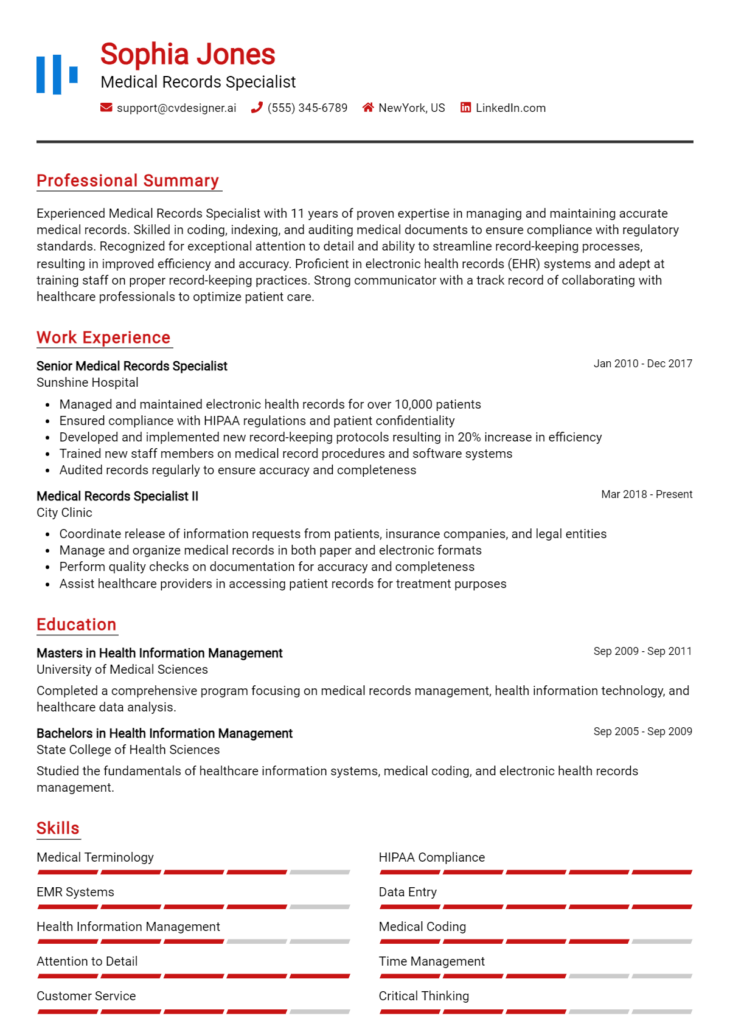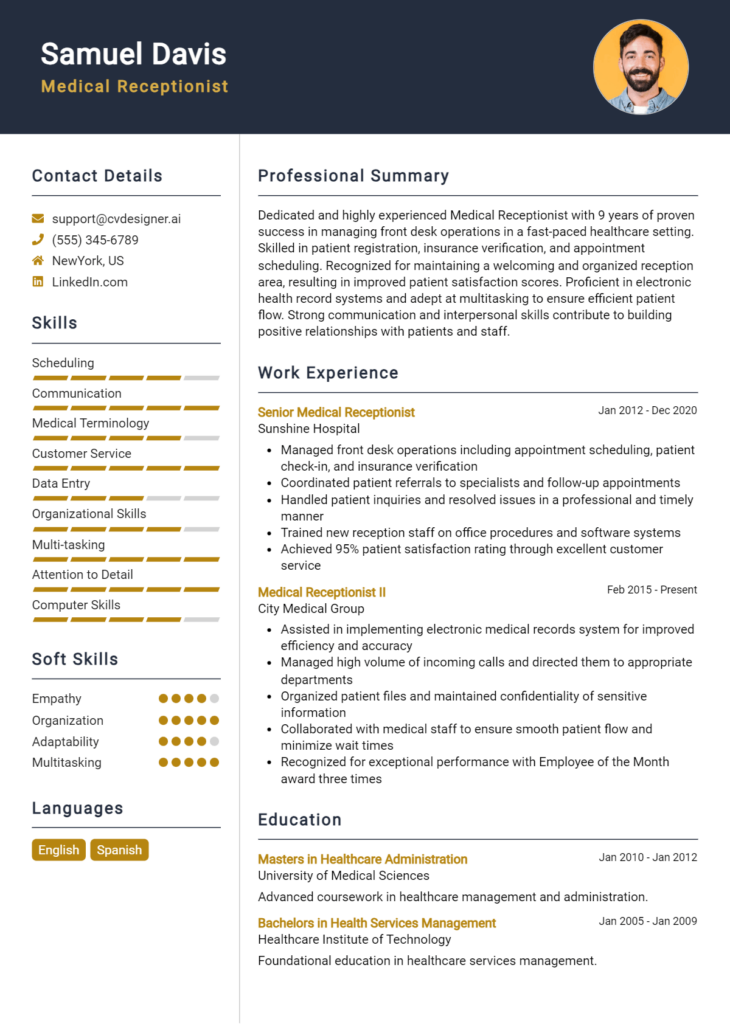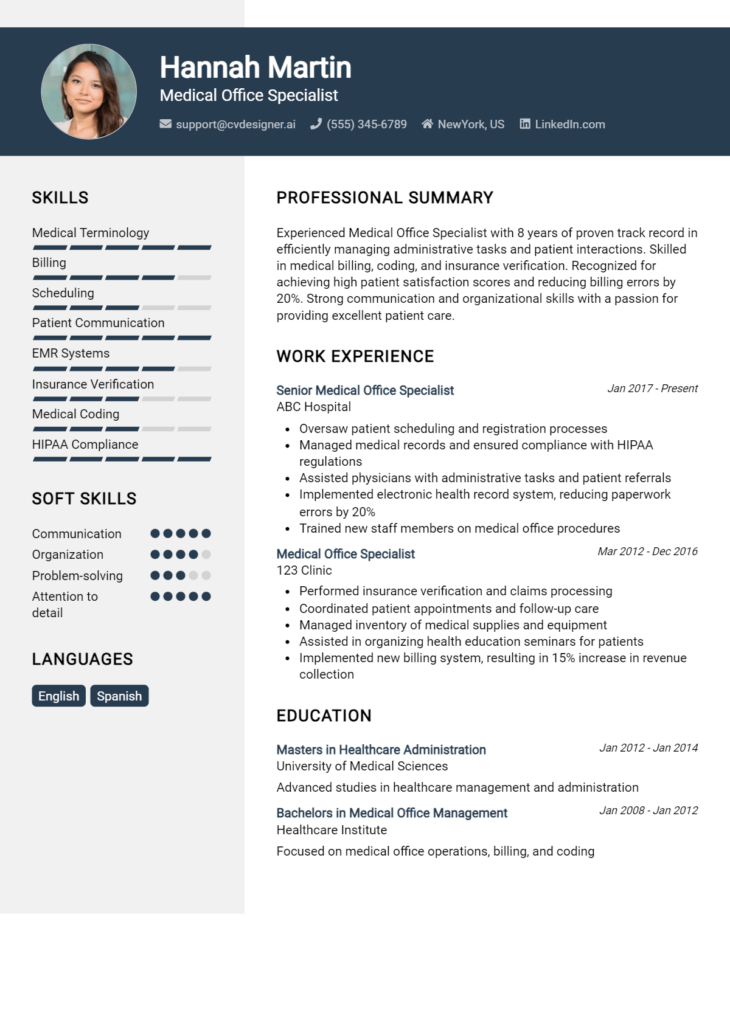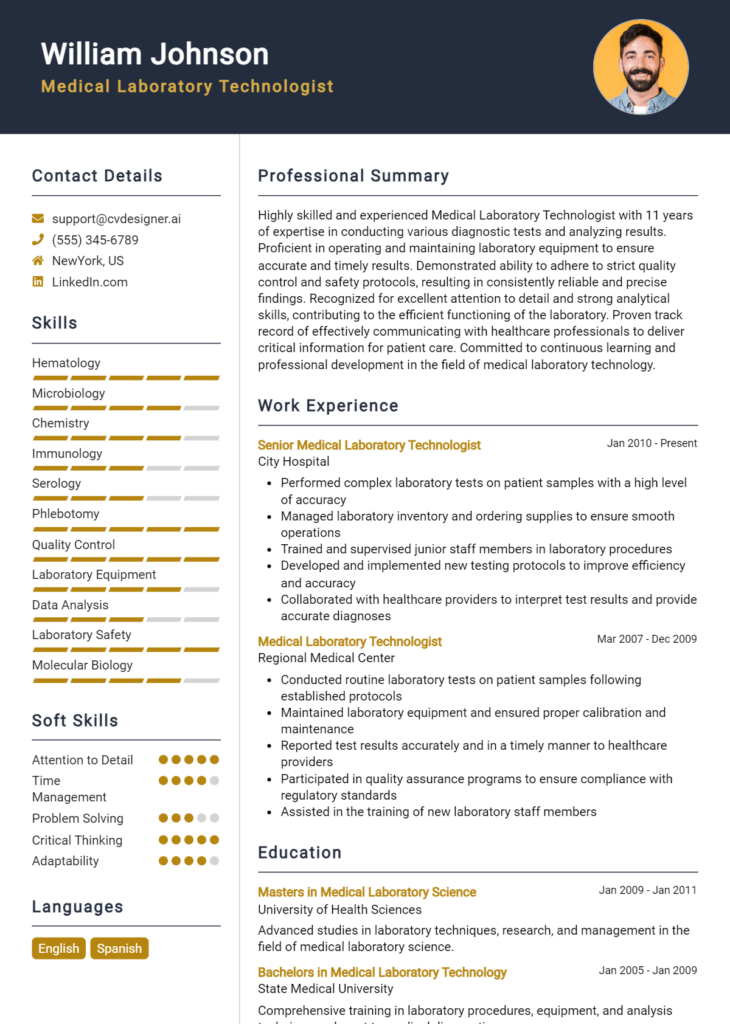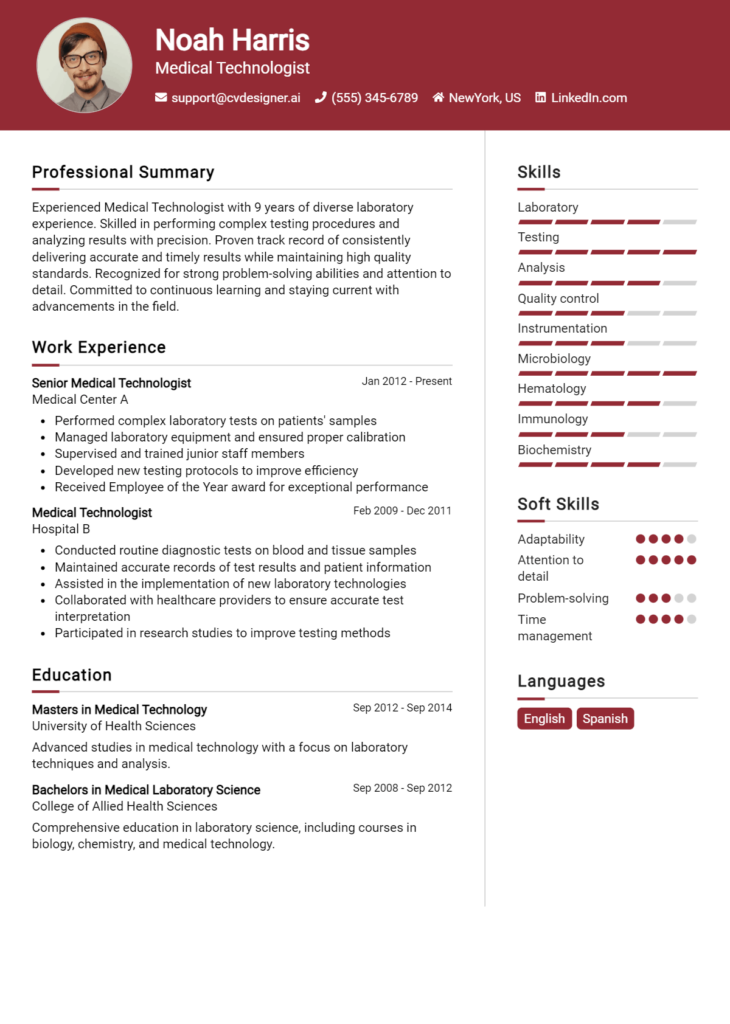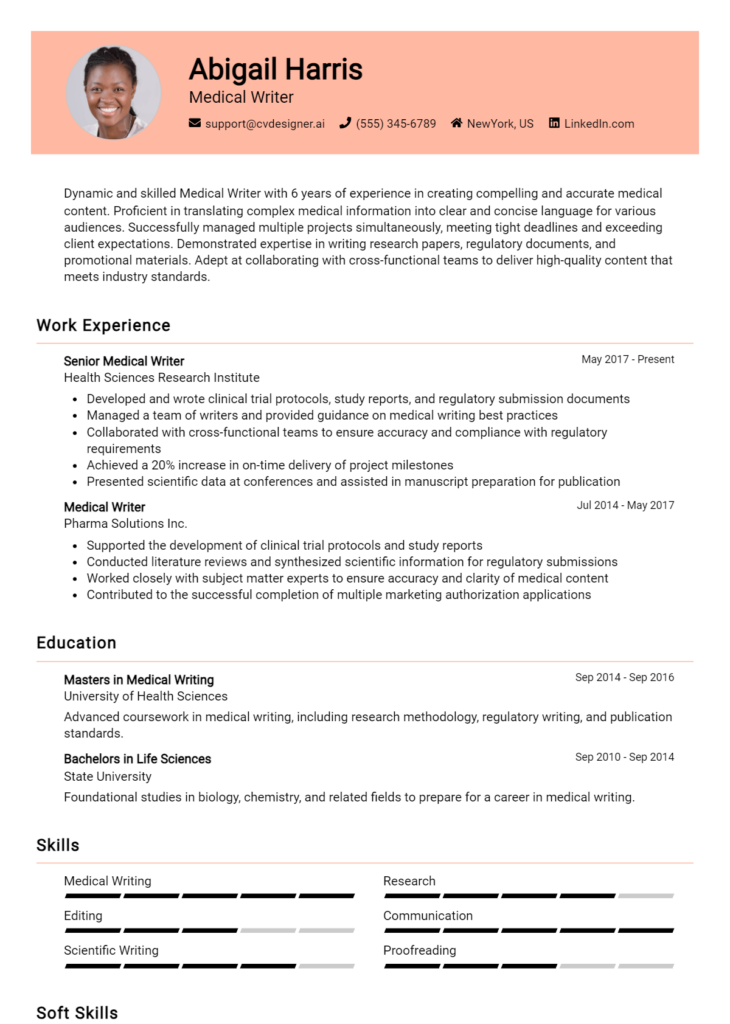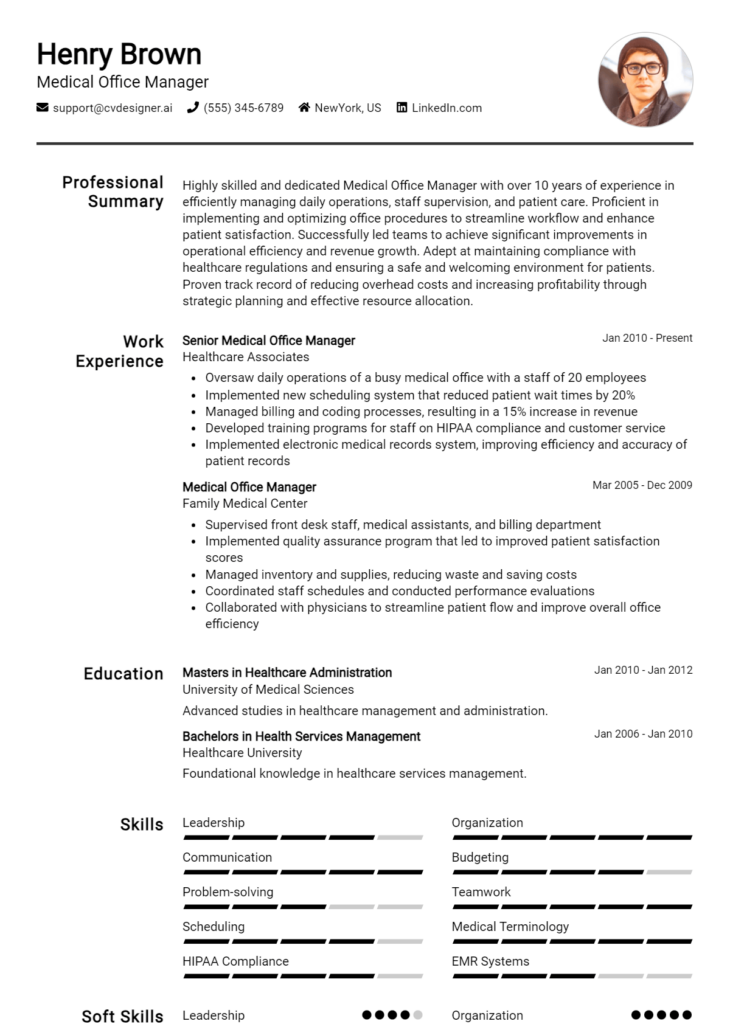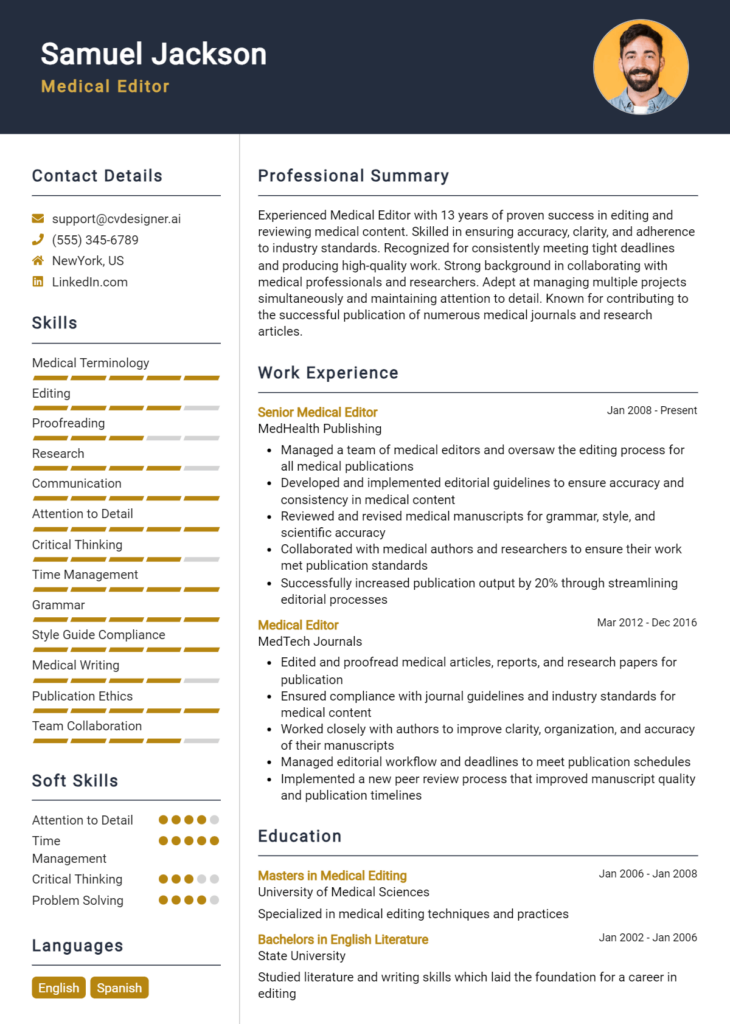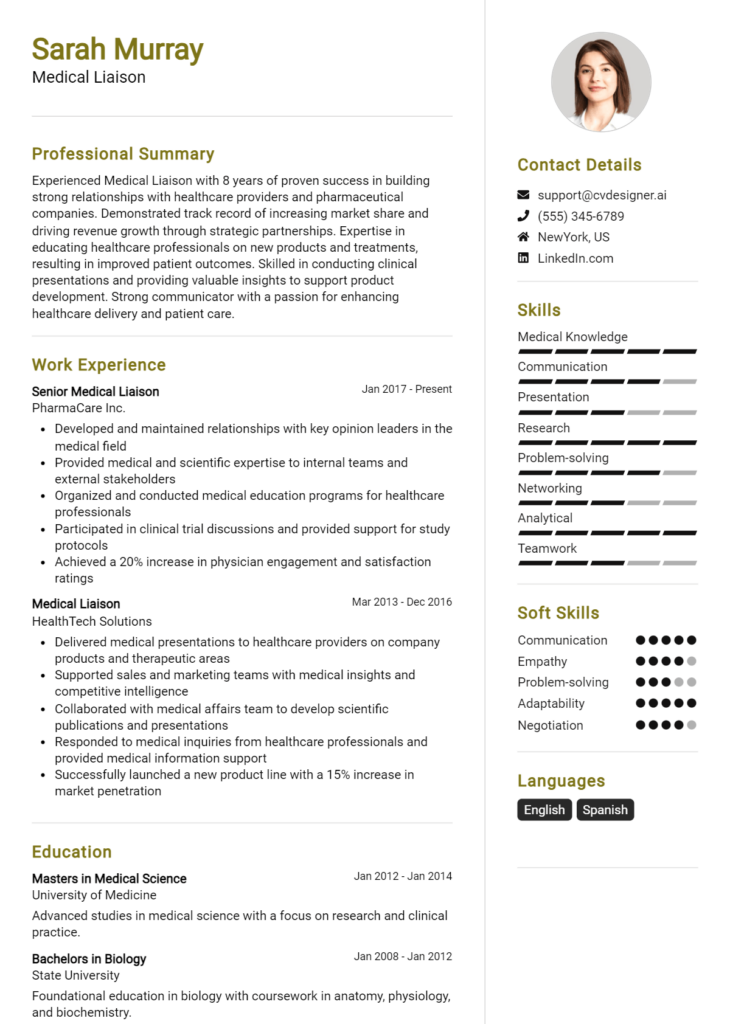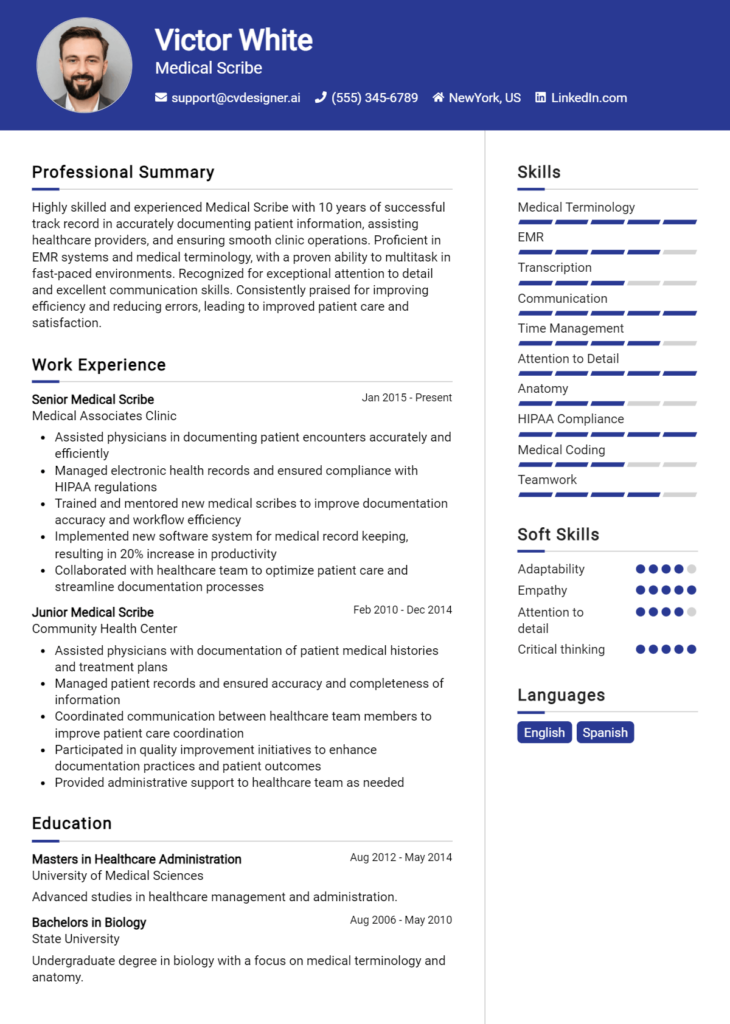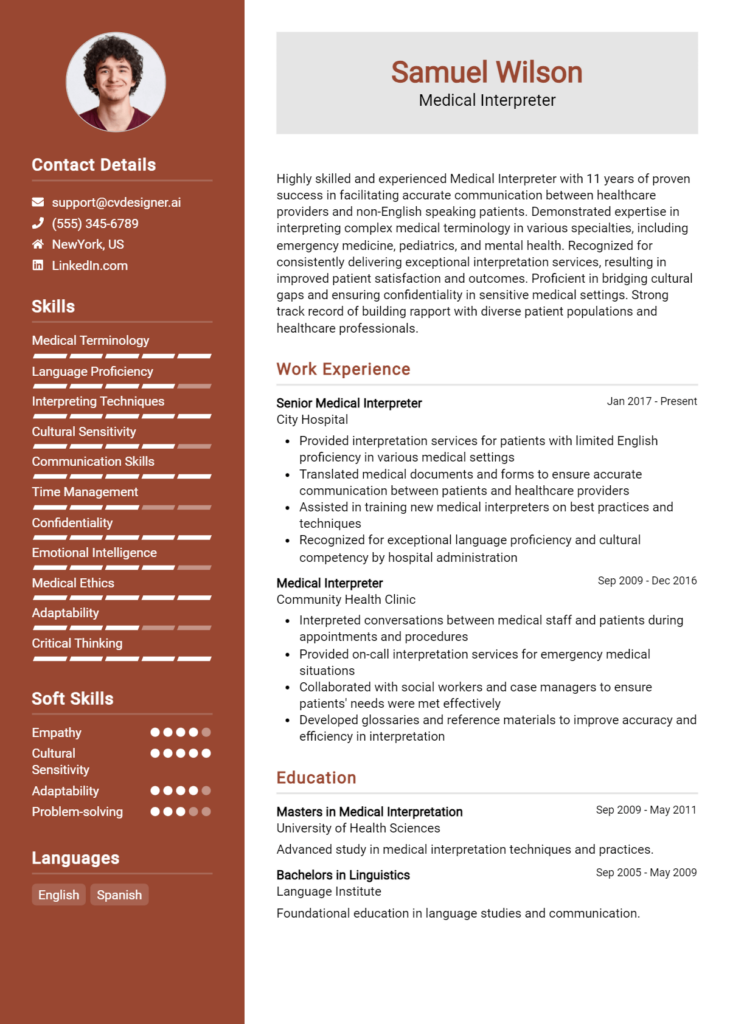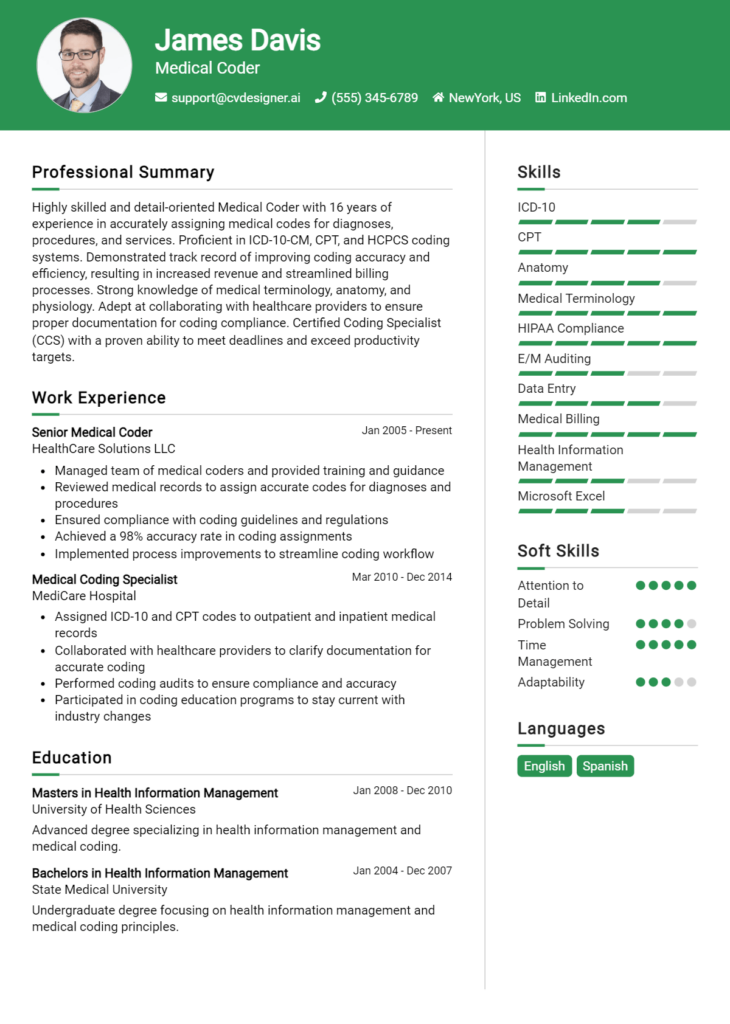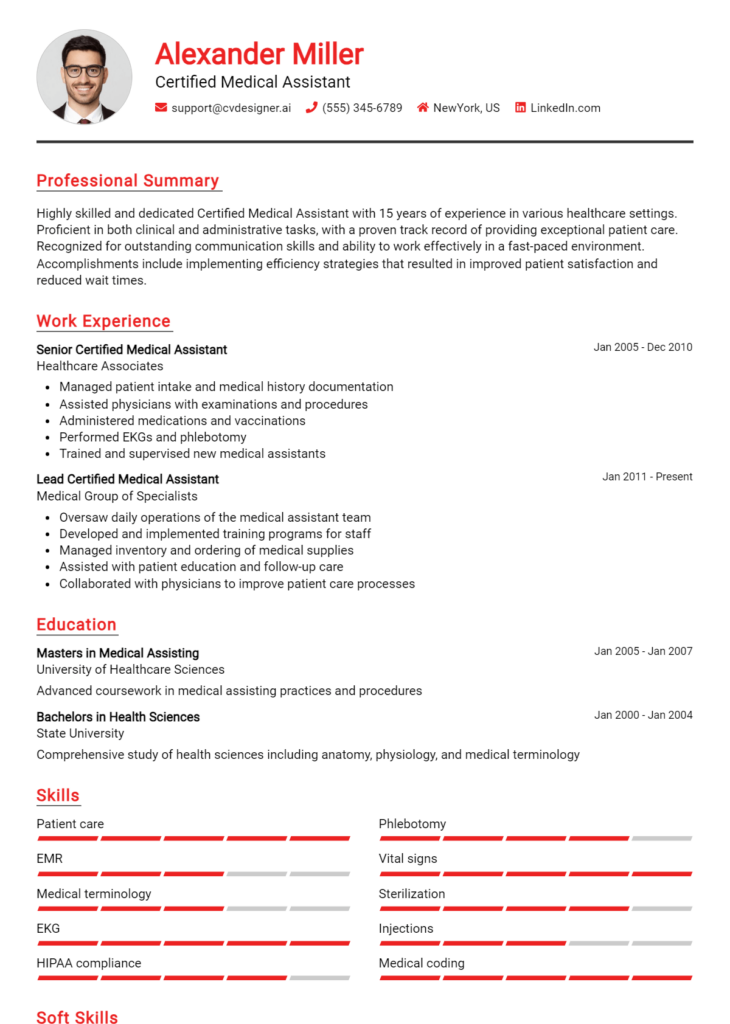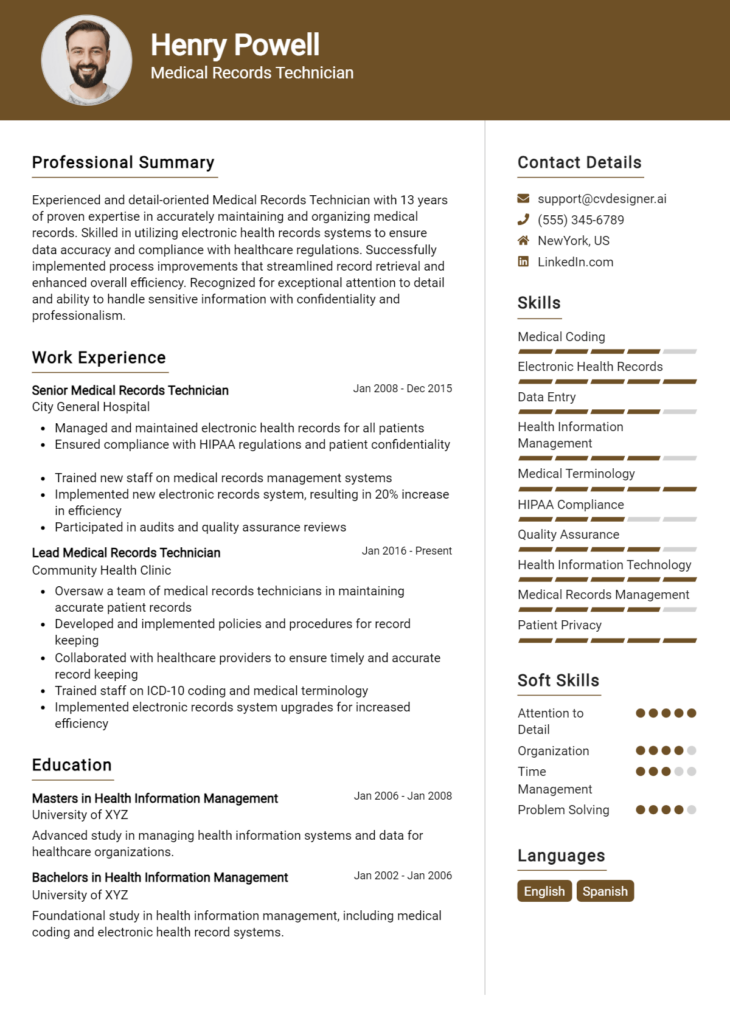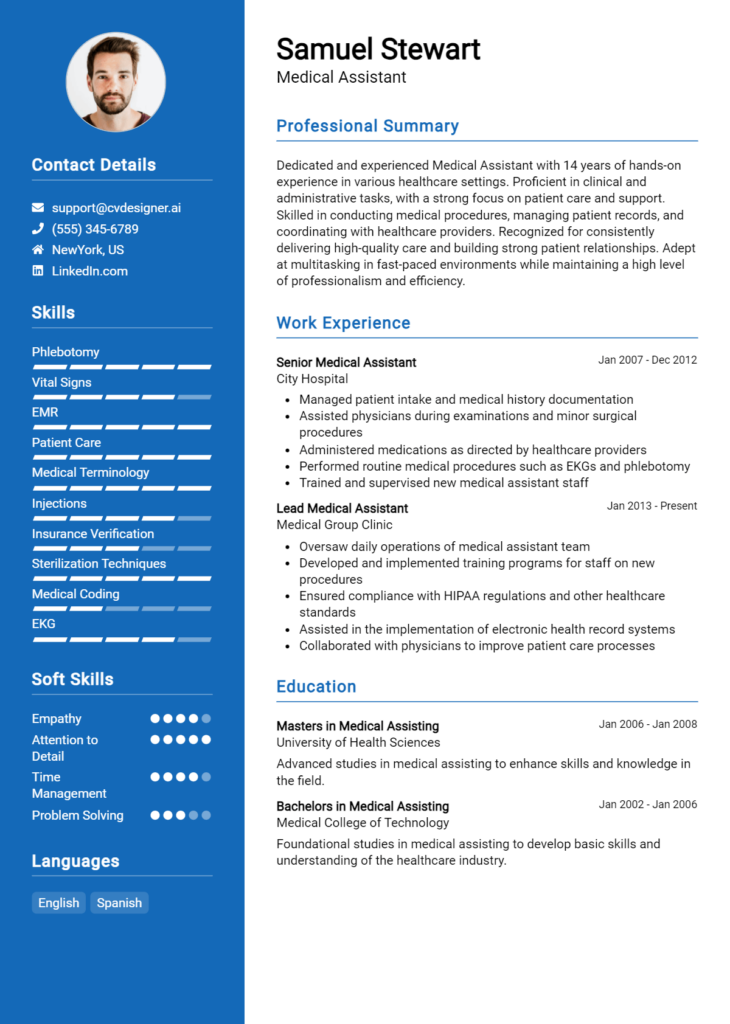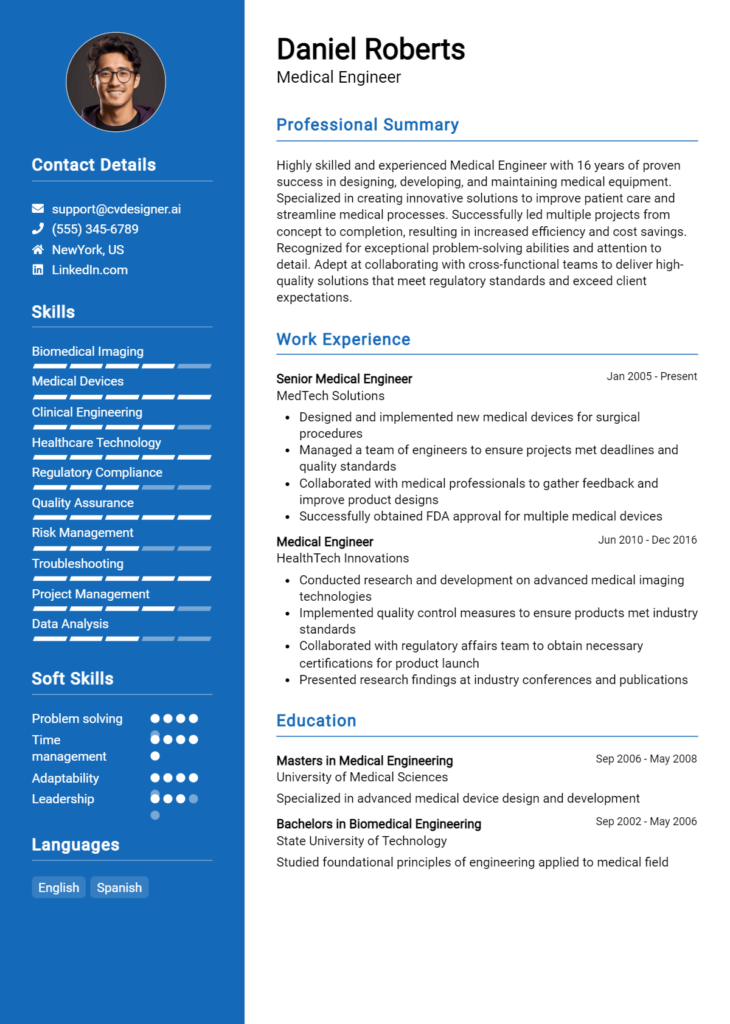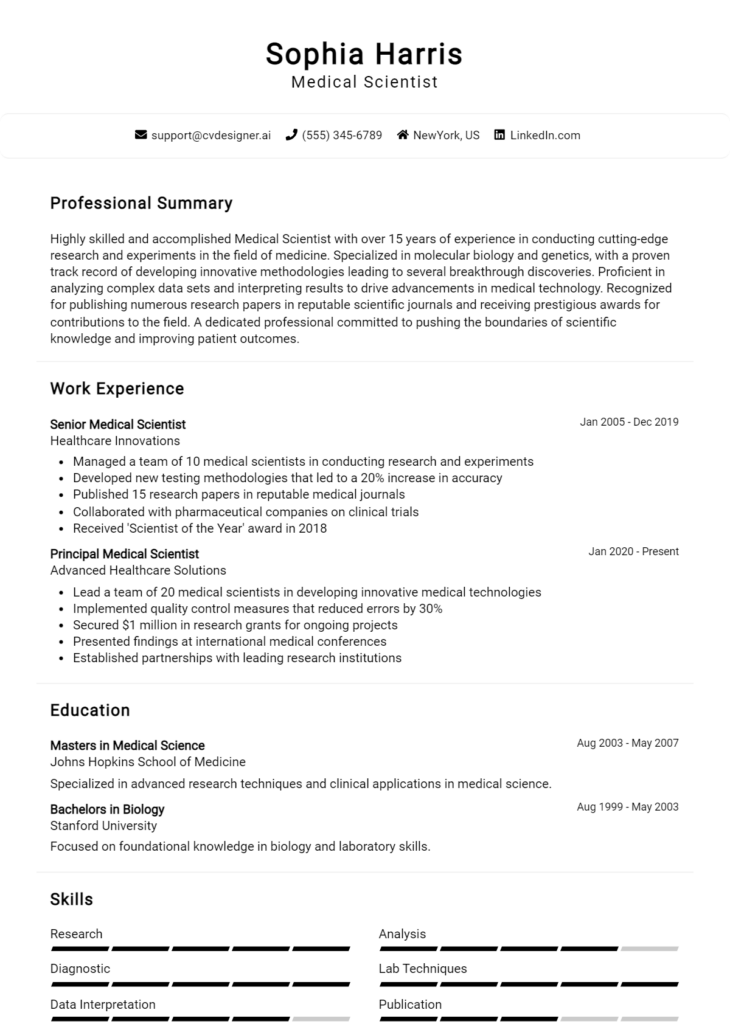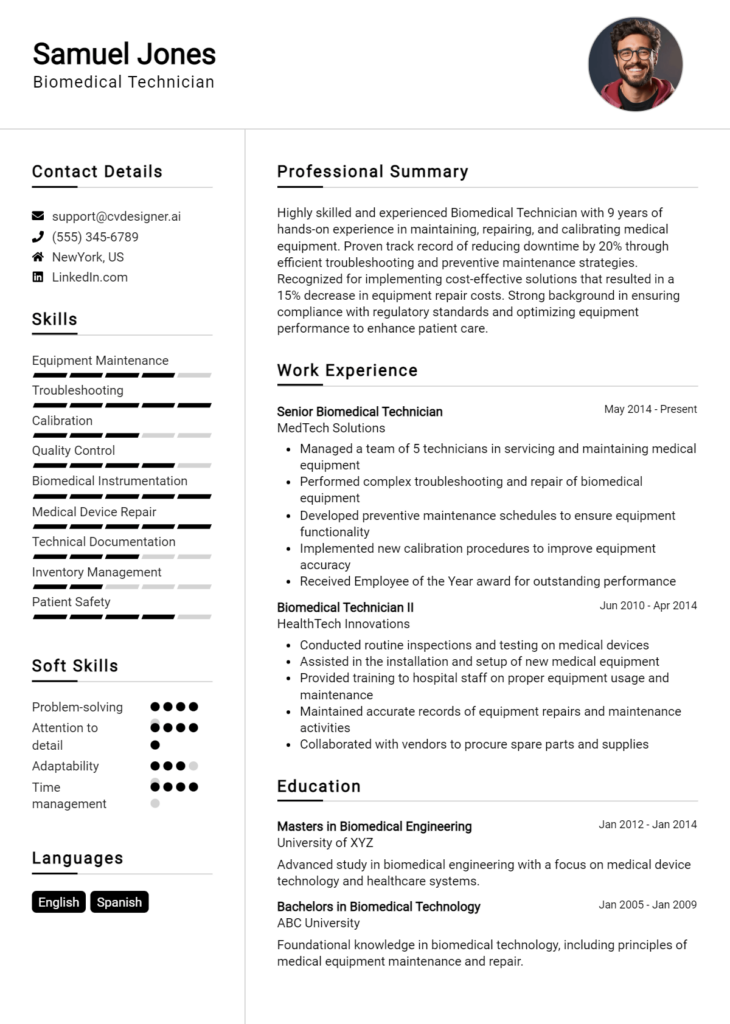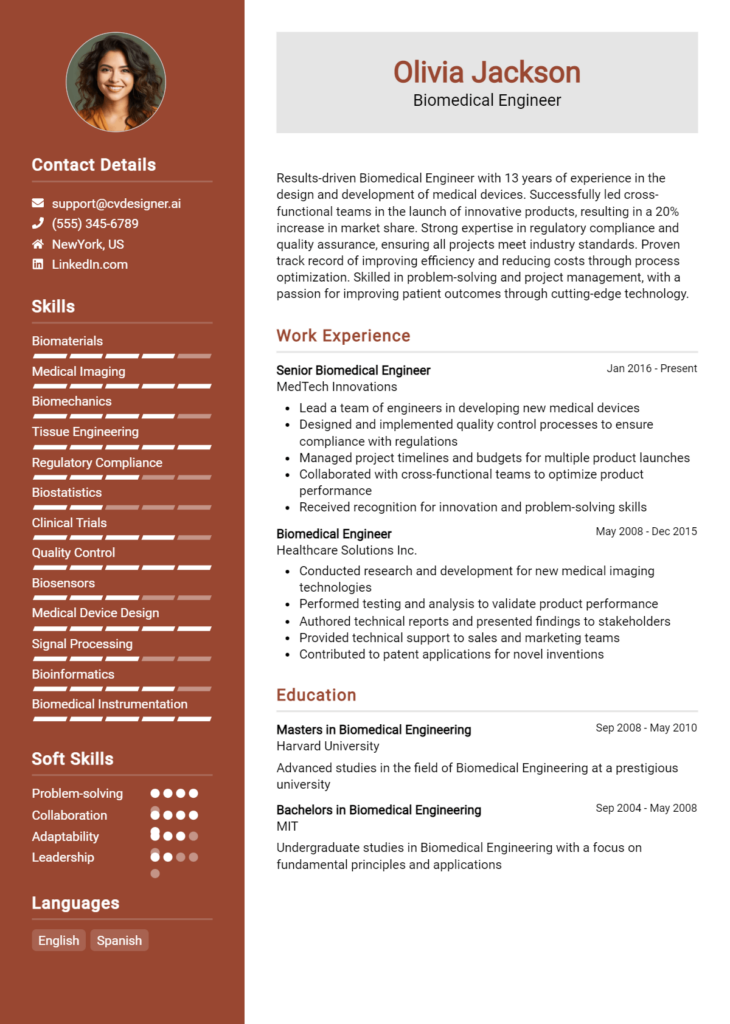Most Popular Medical Claims Processor Resume Examples
Explore additional Medical Claims Processor resume samples and guides and see what works for your level of experience or role.
In the fast-paced world of healthcare, the role of a Medical Claims Processor is crucial for ensuring that medical facilities receive timely reimbursements for the services they provide. This position not only requires a keen eye for detail but also a deep understanding of medical coding, insurance policies, and regulatory compliance. As the bridge between healthcare providers and insurance companies, a skilled claims processor contributes significantly to the financial health of healthcare organizations. However, standing out in this competitive field requires more than just experience; it demands a well-crafted resume that effectively showcases your skills and accomplishments.
In this comprehensive guide to writing a Medical Claims Processor resume, we will explore essential topics to help you create a standout application. You will learn about the key responsibilities and skills associated with the role, the best resume format to use for maximum impact, and common mistakes to avoid that could hinder your chances of landing an interview. We will provide resume examples tailored for all experience levels, along with expert tips on crafting a compelling narrative that resonates with hiring managers. Additionally, we will discuss how to select the right resume templates to enhance your presentation and ensure your resume captures attention. Get ready to take your career to the next level with our in-depth resume writing guide!
Key Responsibilities and Skills for a Medical Claims Processor
As a Medical Claims Processor, you play a crucial role in the healthcare system by ensuring that medical claims are accurately processed and reimbursed in a timely manner. Your key responsibilities include:
- Reviewing and verifying medical claims for accuracy and completeness.
- Ensuring compliance with government regulations and insurance policies.
- Communicating with healthcare providers, patients, and insurance companies to resolve discrepancies.
- Maintaining detailed records of claims processed and their outcomes.
- Utilizing specialized software to track and manage claims.
- Investigating and resolving denied or disputed claims.
- Staying updated with policy changes and industry trends to ensure accurate processing.
To excel in this role, several essential skills are required:
- Attention to detail
- Strong analytical skills
- Excellent communication abilities
- Proficiency in medical billing and coding
- Familiarity with healthcare regulations and insurance policies
- Organizational skills
- Problem-solving capabilities
Highlighting these skills effectively in your resume skills section is vital for capturing the attention of hiring managers. Tailoring your responsibilities and skills to align with the specific job description can significantly enhance your chances of landing an interview. Additionally, consider how these skills could be showcased in a strong CV, demonstrating not only your qualifications but also your understanding of the role's demands and expectations.
Best Resume Format and Structure for a Medical Claims Processor
When crafting a resume for the role of a Medical Claims Processor, it's essential to choose a format that effectively highlights your qualifications, experience, and skills. Here’s a detailed guide on the best resume format and structure for this position.
Contact Information
The top section of your resume should include your contact information. This should be clearly displayed and easy to read.
- Name: Your full name, bolded and in a larger font size.
- Phone Number: A reliable contact number where you can be reached.
- Email Address: A professional email address.
- LinkedIn Profile (optional): Including a LinkedIn profile can add credibility and offer more insight into your professional background.
- Address (optional): While including your full address isn’t necessary, you can mention your city and state.
Professional Summary
This section should provide a brief overview of your qualifications and experience. Aim for 2-4 sentences that summarize your expertise in medical claims processing, relevant skills, and what you bring to the role.
- Example: “Detail-oriented Medical Claims Processor with over 5 years of experience in reviewing and processing insurance claims. Proficient in ICD-10 and CPT coding, with a strong understanding of healthcare regulations. Committed to ensuring accuracy and efficiency in claims processing to optimize revenue cycle management.”
Work Experience
The work experience section is critical for a Medical Claims Processor resume. Use reverse chronological order, starting with your most recent position. For each role, include the following:
- Job Title: Clearly state your position.
- Company Name: Include the name of the organization.
- Location: City and state where the company is located.
- Dates of Employment: Month and year of start and end dates.
- Responsibilities and Achievements: Use bullet points to describe your duties and accomplishments, focusing on quantifiable results when possible. Highlight any experience with specific software or tools relevant to claims processing.
Education
List your educational background, starting with the most recent degree. Include:
- Degree: Specify the degree earned (e.g., Associate’s, Bachelor’s).
- Field of Study: Mention your major or focus area.
- Institution Name: Name of the university or college.
- Graduation Date: Month and year of graduation.
Skills
In this section, list relevant skills that are applicable to the role of a Medical Claims Processor. Use bullet points for readability and include both hard and soft skills.
- Example Skills:
- Proficient in medical coding (ICD-10, CPT)
- Knowledge of healthcare regulations and compliance
- Strong analytical and problem-solving abilities
- Excellent attention to detail
- Familiarity with billing software (e.g., Meditech, Epic)
Certifications
If you have any relevant certifications, this section is essential to include. List them in reverse chronological order, including:
- Certification Name: (e.g., Certified Professional Coder (CPC))
- Issuing Organization: Name of the organization that issued the certification.
- Date Obtained: Month and year.
Formatting Tips
- Font Style and Size: Use a professional font (e.g., Arial, Calibri, Times New Roman) in a readable size (10-12 points).
- Margins: Keep margins uniform, usually around 1 inch on all sides.
- Length: Aim for a one-page resume unless you have extensive experience.
- Bullet Points: Use bullet points for lists to enhance readability.
- Consistency: Ensure consistent formatting throughout, including font sizes, bullet styles, and spacing.
Complementing Cover Letter Format
The format of your resume can complement your cover letter. Keep the design elements consistent between both documents, such as font style and colors, to create a cohesive professional appearance. In your cover letter, you can expand on specific experiences and skills mentioned in your resume, creating a well-rounded application package.
By following this guide, you can create a resume that effectively showcases your qualifications as a Medical Claims Processor, making a strong impression on potential employers.
Writing Tips and Best Practices for a Medical Claims Processor Resume
When crafting a resume as a Medical Claims Processor, it's essential to present your skills and experiences in a clear and compelling manner. Begin by tailoring your resume to match the specific job description, using industry-specific terminology to illustrate your expertise. Highlight your achievements with quantifiable results to demonstrate your impact in previous roles. Utilizing action verbs can vividly convey your contributions and responsibilities, making your resume more engaging. To ensure a polished and professional appearance, refer to resume writing tips. Remember that these best practices also apply when drafting your cover letter, as consistency across documents strengthens your application.
- Use action verbs like "processed," "analyzed," and "resolved" to describe your tasks.
- Quantify your achievements, such as "processed 300 claims per week" or "reduced claim processing time by 20%."
- Incorporate industry-specific keywords, such as "medical coding," "insurance verification," and "claims adjudication."
- Keep your resume organized with clear headings and bullet points for easy readability.
- Customize your resume for each application, aligning your skills with the specific job requirements.
- Highlight relevant certifications or training, such as CPC or CCS, to showcase your qualifications.
- Limit your resume to one page, focusing on the most pertinent information that reflects your expertise.
- Proofread carefully to eliminate any errors, ensuring a professional presentation.
Common Mistakes to Avoid in a Medical Claims Processor Resume
When crafting a resume for a Medical Claims Processor position, it's essential to present your qualifications and experience in a clear, concise, and compelling manner. However, many candidates fall into common pitfalls that can undermine the effectiveness of their resumes. To stand out in a competitive job market, it's crucial to avoid these mistakes that can detract from your skills and achievements. Here are some common errors to be aware of:
- Overloading the resume with excessive information, making it difficult for hiring managers to identify key qualifications.
- Using generic descriptions that fail to highlight specific skills or achievements relevant to the medical claims processing field.
- Neglecting to tailor the resume for each job application, missing the chance to align your experience with the job requirements.
- Failing to quantify achievements, which can diminish the impact of your contributions in previous roles.
- Using jargon or technical terms that may not be understood by all readers, including HR personnel.
- Ignoring formatting rules, such as inconsistent fonts or layout issues, which can make the resume look unprofessional.
- Omitting important details like certifications or relevant software proficiency that are crucial for the role.
- Including irrelevant work experience that does not contribute to the desired skills for a Medical Claims Processor.
- Not proofreading for grammatical errors or typos, which can create a negative impression about your attention to detail.
- Using an unprofessional email address, which can detract from your overall professionalism.
To ensure your resume is polished and effective, consider reviewing the common mistakes to avoid in a resume for additional insights. Furthermore, don't forget to check out the common cover letter mistakes that should also be avoided, as a strong cover letter complements your resume and enhances your chances of landing the job.
Sample Medical Claims Processor Resumes
As a Medical Claims Processor, you play a crucial role in the healthcare industry by ensuring that claims are accurately processed and that providers and patients receive timely payments. Crafting an effective resume is essential for standing out in this competitive field. Below are three sample resumes tailored for different levels of experience and career backgrounds, which can serve as a guide for your own application.
Experienced Medical Claims Processor Resume
Jane Doe
[City, State]
[Phone Number]
[Email Address]
Professional Summary
Detail-oriented Medical Claims Processor with over 7 years of experience in verifying and processing insurance claims. Proficient in medical coding, billing, and using software such as Epic and Meditech. Excellent analytical and problem-solving skills with a strong commitment to accuracy and compliance.
Professional Experience
Senior Medical Claims Processor
ABC Healthcare, City, State | Jan 2018 – Present
- Process an average of 150 claims daily, ensuring adherence to insurance regulations and company policies.
- Conduct audits of processed claims to identify discrepancies and implement corrective measures, reducing errors by 25%.
- Collaborate with healthcare providers to resolve claim denials, resulting in a 40% increase in claim approvals.
- Train and mentor junior staff in claims processing procedures and software usage.
Medical Claims Processor
XYZ Insurance, City, State | Jun 2015 – Dec 2017
- Reviewed and processed claims for accuracy, completeness, and compliance with state and federal regulations.
- Assisted in the development of training materials for new employees, enhancing onboarding efficiency.
- Maintained detailed records of claim statuses and communicated updates to clients and providers.
Education
Associate Degree in Health Information Technology
Community College, City, State | Graduated May 2015
Skills
- Medical Coding (CPT, ICD-10)
- Claims Processing Software (Epic, Meditech)
- Regulatory Compliance
- Data Entry and Management
- Strong Communication Skills
Entry-Level Medical Claims Processor Resume
John Smith
[City, State]
[Phone Number]
[Email Address]
Objective
Recent graduate with a background in health administration seeking an entry-level Medical Claims Processor position. Eager to apply strong organizational and analytical skills to support efficient claims processing and contribute to team success.
Education
Bachelor of Science in Health Administration
University of State, City, State | Graduated May 2023
Relevant Coursework
- Medical Billing and Coding
- Health Insurance and Reimbursement
- Health Law and Ethics
Internship Experience
Medical Billing Intern
Health Services, City, State | Jan 2023 – May 2023
- Assisted in the processing of medical claims and billing inquiries, ensuring timely submissions.
- Conducted research on claim denials and helped identify root causes, improving overall claim accuracy.
- Supported the administrative team by maintaining organized records and preparing reports on billing metrics.
Skills
- Knowledge of Medical Coding (CPT, ICD-10)
- Proficient in MS Office Suite (Excel, Word, PowerPoint)
- Excellent Attention to Detail
- Strong Interpersonal and Communication Skills
Career Changer Medical Claims Processor Resume
Emily Johnson
[City, State]
[Phone Number]
[Email Address]
Professional Summary
Results-driven professional transitioning from a successful career in customer service to the role of Medical Claims Processor. Strong aptitude for detail-oriented tasks and a commitment to delivering exceptional service and support. Seeking to leverage transferable skills in a dynamic healthcare environment.
Professional Experience
Customer Service Representative
XYZ Corporation, City, State | Jan 2019 – Oct 2023
- Managed customer inquiries and resolved issues in a fast-paced environment, achieving a 95% satisfaction rating.
- Analyzed customer data to identify trends and improve service delivery, which led to a 20% reduction in complaint resolution time.
- Developed training materials for new hires, focusing on claims processing and customer relations.
Education
Certificate in Medical Billing and Coding
Online Learning Institute | Completed Aug 2023
Skills
- Excellent Problem Solver
- Strong Analytical Skills
- Proficient in Microsoft Office and Claims Processing Software
- Customer Relationship Management
- Ability to Work Under Pressure
For further inspiration, explore more resume templates that can help you craft the perfect resume for your dream job. Don't forget that corresponding cover letter examples can enhance your job application package, making it even more compelling.
Checklist for a Medical Claims Processor Resume
- Proofread for Errors: Carefully review your resume for any grammatical, spelling, or punctuation mistakes. Even minor errors can create a negative impression.
- Check Formatting Consistency: Ensure that font sizes, styles, and bullet point formats are consistent throughout the document for a polished look.
- Tailor Your Resume: Customize your resume for each application by incorporating keywords and phrases from the job description to highlight your relevant skills and experience.
- Highlight Relevant Experience: Make sure to emphasize your previous work experience related to medical claims processing, including specific duties and accomplishments.
- Include Relevant Certifications: If you have any certifications related to medical billing or coding, be sure to include them prominently in your resume.
- Quantify Achievements: Use numbers and metrics to showcase your accomplishments, such as the number of claims processed accurately or the percentage of claims approved.
- Keep It Concise: Aim for a clear and concise resume, ideally one page, while including all relevant information without unnecessary details.
- Use Action Verbs: Start bullet points with strong action verbs to convey your responsibilities and achievements effectively, making your contributions stand out.
- Seek Feedback: Before finalizing, consider sharing your resume with a trusted friend or colleague for feedback on clarity and impact.
- Utilize an AI Resume Builder: For a well-organized and visually appealing resume, consider using an AI resume builder. This tool can help ensure all elements are effectively structured.
Following a similar checklist can also enhance the quality of your CV or cover letter, ensuring they are tailored, error-free, and professionally presented.
Key Takeaways for a Medical Claims Processor Resume Guide
As you embark on crafting your Medical Claims Processor resume, remember that a well-structured and compelling document can significantly enhance your chances of landing an interview. Utilize the provided examples and tips to showcase your skills, experience, and qualifications effectively. By incorporating relevant industry keywords and demonstrating your attention to detail, you can create a resume that stands out to potential employers.
To take the next step in your job search, consider downloading one of our professionally designed resume templates to ensure your resume is visually appealing and easy to read. Don’t forget to complement your application with a strong cover letter by checking out our cover letter templates or use our best resume maker for a streamlined process.
By following similar guidelines, you can also craft a compelling CV and cover letter that highlight your qualifications and align with the expectations of hiring managers in the medical claims processing field. Start today and take the first step towards securing your desired position!
